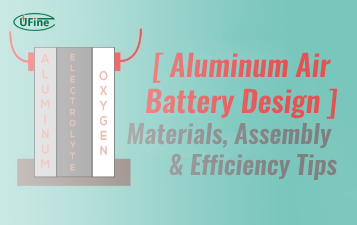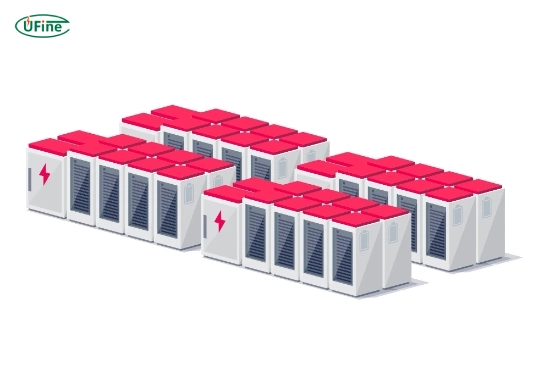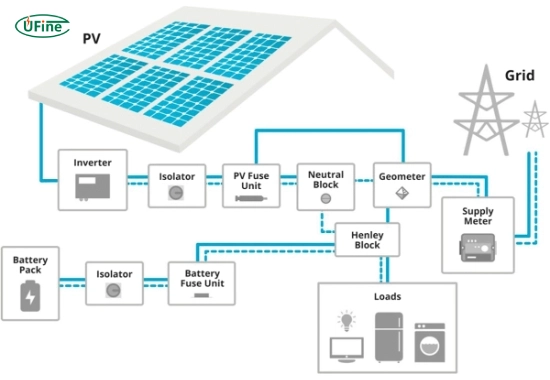The global shift towards renewable energy has been one of the most transformative energy transitions in history. With concerns over climate change and the growing need for sustainable power, innovative technologies are stepping up to meet the demand. One of the most promising developments in this space is lithium energy storage solutions. These systems are revolutionizing the way we store and use energy, offering unmatched efficiency, durability, and scalability.
In this article, we’ll dive deep into how these energy storage solutions are shaping the future of renewable energy, their benefits, and why they are a key component in achieving global sustainability goals.
Part 1. What are lithium energy storage solutions?
Lithium energy storage solutions are advanced systems that use lithium-ion batteries to store and manage energy. These batteries are widely known for their lightweight design, high energy density, and long lifespan, making them a reliable choice for a variety of applications, from powering electric vehicles to stabilizing energy grids.
At their core, lithium-ion batteries work by storing energy in chemical form and releasing it as electricity when needed. This ability to store renewable energy and release it on demand makes them a cornerstone of modern energy storage solutions.
Part 2. Why are energy storage solutions essential for renewable energy?
Renewable energy sources like solar and wind power are intermittent by nature—solar panels generate electricity only when the sun shines, and wind turbines only operate when the wind blows. This variability creates a significant challenge for energy reliability and grid stability.
That’s where energy storage solutions come in. By storing excess renewable energy when it’s abundant and delivering it when demand is high, these systems ensure a steady and reliable energy supply. Without effective energy storage, renewable energy would struggle to compete with traditional fossil fuels.
Part 3. How do lithium batteries outperform traditional energy storage methods?
- Higher energy density: Lithium batteries can store more energy in a smaller, lighter package.
- Longer lifespan: They offer a greater number of charge cycles, reducing the need for frequent replacements.
- Faster charging and discharging: Lithium batteries can charge quickly and deliver energy immediately when needed.
- Low maintenance: Unlike lead-acid batteries, lithium-ion systems require minimal upkeep.
- Scalability: Lithium systems can easily be scaled up for large applications, such as grid energy storage or industrial use.
These advantages make lithium energy storage solutions a perfect fit for renewable energy systems.
Part 4. How do lithium energy storage solutions support grid stability?
A major challenge for power grids is balancing supply and demand in real-time. A mismatch can lead to blackouts or wasted energy. Lithium energy storage solutions play a critical role in stabilizing the grid by:
- Absorbing excess energy during periods of low demand and high renewable energy generation.
- Releasing stored energy during peak usage times to meet demand.
- Providing frequency regulation to ensure the grid operates at a stable frequency.
These capabilities make lithium batteries indispensable for modern energy infrastructure.
Part 5. Applications of lithium energy storage solutions
- Residential energy storage systems: Homeowners can store solar energy and use it during the night or power outages.
- Electric vehicles (EVs): Lithium batteries power EVs, reducing reliance on fossil fuels and lowering emissions.
- Commercial and industrial sectors: Businesses use these systems to lower energy costs and ensure uninterrupted operations.
- Grid-scale storage: Large-scale lithium systems help utilities manage renewable energy integration and grid stability.
The versatility of these solutions makes them essential across industries.
Part 6. Are lithium energy storage solutions environmentally friendly?
A common question is whether lithium batteries are truly sustainable. While they have a lower environmental impact than fossil fuels, there are some challenges:
- Mining concerns: Extracting lithium and other materials like cobalt can harm ecosystems.
- Recycling: Lithium battery recycling is still developing, but advancements are being made to recover valuable materials.
Despite these challenges, the overall environmental benefits of lithium energy storage solutions—like reducing greenhouse gas emissions and enabling renewable energy adoption—far outweigh the negatives.
Part 7. The role of lithium energy storage in off-grid living
For those living off-grid, lithium energy storage solutions are a game-changer. Paired with solar panels, these systems allow individuals to generate and store their electricity, achieving energy independence. Key benefits include:
- Reliability: Lithium batteries provide consistent power, even during cloudy weather or at night.
- Longevity: Their long lifespan reduces the need for replacements, saving money in the long run.
- Compact design: Lightweight and small, they are ideal for off-grid setups where space is limited.
Off-grid living has never been more accessible, thanks to these innovations.
Part 8. Challenges of lithium energy storage solutions
- Cost: Lithium batteries are still relatively expensive compared to traditional options.
- Raw material sourcing: The demand for lithium and other materials is driving up costs and raising concerns about supply chain sustainability.
- Safety concerns: Improper handling or manufacturing defects can lead to overheating or fires, although advancements in safety features are mitigating these risks.
Despite these hurdles, ongoing research and innovation are addressing these challenges, making lithium energy storage solutions more accessible and safer.
Part 9. Future trends in lithium energy storage solutions
- Solid-state batteries: These next-generation batteries promise even higher energy density and improved safety.
- Recycling advancements: New recycling methods are making it easier to recover valuable materials from used batteries.
- Grid-scale innovations: Larger and more efficient lithium systems are being developed to support the growing demand for renewable energy.
These advancements will further cement lithium’s role in the renewable energy revolution.
Part 10. FAQs
-
What are energy storage solutions?
Energy storage solutions are systems designed to store energy—usually from renewable sources like solar or wind—and release it when needed to ensure a reliable power supply. -
Why are lithium batteries preferred for energy storage?
Lithium batteries are preferred due to their high energy density, long lifespan, fast charging capabilities, and low maintenance requirements. -
Can lithium energy storage solutions be recycled?
Yes, lithium batteries can be recycled, and advancements in recycling technology are improving the recovery of valuable materials like lithium, cobalt, and nickel. -
Are lithium energy storage solutions safe?
Modern lithium batteries include safety features to prevent overheating and fires. However, proper handling and installation are essential to ensure safety. -
How do lithium energy storage solutions benefit renewable energy?
They store excess renewable energy when it’s available and release it during periods of high demand, ensuring a consistent and reliable power supply.
Related Tags:
More Articles

Aluminum Air Battery Design: Materials, Assembly & Efficiency Tips
An aluminum air battery uses aluminum and air to generate power. Learn its materials, assembly steps, and tips to boost energy output and efficiency.
7 Advantages of a Heated Lithium Battery in Cold Climates
Looking to power batteries in freezing temps? Heated lithium batteries excel in cold climates. Here are 7 key benefits and how they work.
How to Choose the Best Floor Scrubber Battery for Commercial Cleaning?
Selecting the ideal floor scrubber battery ensures a long runtime, rapid charging, and minimal maintenance for efficient commercial cleaning operations.
Battery for Blower vs Battery for Leaf Vacuum: Which One Should You Choose?
Battery for blower vs leaf vacuum—learn the key differences in power, fit, and runtime to choose the right battery for your outdoor tool needs.
How to Choose the Right Battery for Blower?
Choosing the right blower battery? Consider voltage, capacity, chemistry & usage. This guide helps match the best battery for peak performance.





